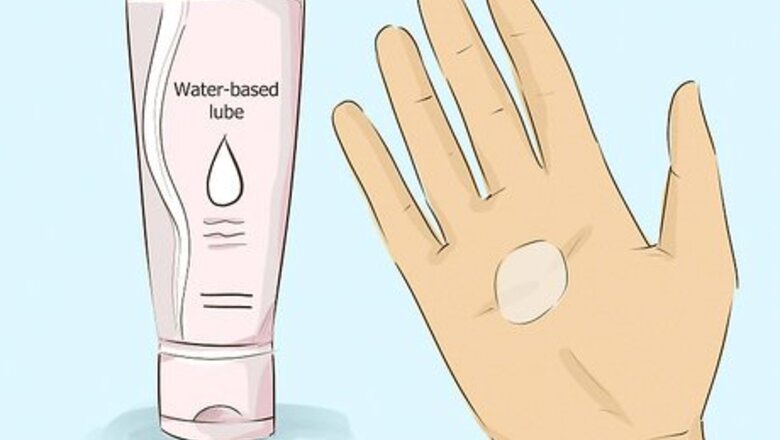
views
Having Comfortable Sex
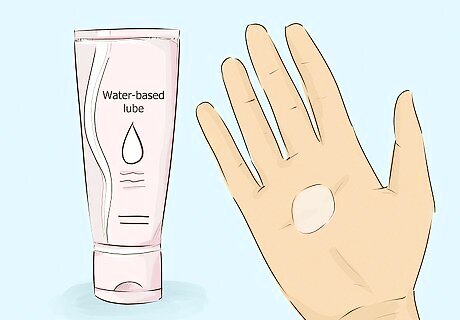
Use lots of lubrication. Try personal lubricants for more comfortable sex during pregnancy. Hormonal shifts while pregnant may make it easier or more difficult to produce your own natural lubrication. To avoid any vaginal discomfort during sex, use as much lube as you need to feel comfortable. You can buy personal lubricants online or at your local drug store. Look for water-based products, and avoid those with dyes or fragrances, which may be irritating.

Try side-lying sex. Lie on your side and have your partner enter you from behind. This position takes pressure off your growing belly and gives your body additional support by lying down. This position provides shallower penetration, which may be more comfortable for some pregnant people. Aim to lie on your left side, rather than your right. This increases the amount of nutrients and blood that flow to the placenta and to the baby.

Try sex with the pregnant person on top. Get on top of your partner so you can control the speed and depth of penetration. By controlling the action, you can determine what is most comfortable for you.

Try sex from behind with a pillow under your belly. On all fours, have your partner penetrate you from behind. You can place a pillow or two underneath your growing belly for additional support.
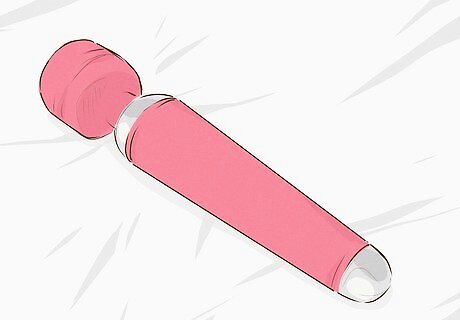
Use a vibrator. If sex doesn’t appeal to you, use a vibrator externally with your partner for some alternative intimacy. Clean your vibrator per the manufacturer’s instructions after every use to prevent infection. Consult your doctor regarding vibrator use if you have a high-risk pregnancy.

Connect using other forms of intimacy. Try massage, mutual masturbation, kissing, or other forms of sexual activity if intercourse feels painful or doesn’t appeal to you. You could create a special date night at home with candles, a movie, and lots of cuddling to feel close, too. Communicate with your partner regularly to discuss how you’re feeling and what you need to feel supported. It’s okay if you don’t feel like having sex. You might say, “You know, my back hurts, and I really don’t feel sexy tonight. I know we’d talked about being intimate. Can I give you a massage instead? I want to make you feel special.”

Call your doctor in case of troubling symptoms. Cramping during sex, especially with orgasm, is normal during pregnancy. However, if you have persistent bleeding, leaking fluid, or pain after sex, call your provider for a check up. Your provider can determine if it’s safe for you to continue sexual activity while pregnant.
Practicing Safe Sex During Pregnancy

Consult your doctor if your pregnancy is high-risk. Talk to your doctor if you have unexplained vaginal bleeding, amniotic fluid leaking from your vagina, a multiple pregnancy, or a history of preterm labor. Your doctor may also discuss placenta previa with you, which is when the placenta covers the cervical opening. These conditions may make you more prone to complications, and pelvic rest may be recommended.

Use condoms if you’re not in a monogamous relationship. If you have a new partner or are not monogamous, practice safe sex during pregnancy with condoms and dental dams. Bacteria and viral infections from sexually transmitted diseases can affect your pregnancy and growing baby.

Refrain from lying flat on your back after the first trimester. Avoid lying flat on your back in the second and third trimesters. In this position, your growing uterus puts pressure on a major artery in your body, which may reduce blood flow to your baby and make you feel lightheaded. Instead, try to lie on your left side.

Avoid blowing air into the vagina. Ask your partner not to blow air into your vagina during oral sex. In rare cases, this puff of air can block an artery, potentially harming the baby. Air blocking an artery in this way is called an air embolism.

Don’t have sex in the third trimester if your partner has herpes. Try other forms of intimacy in the third trimester if your partner has cold sores (HSV1) or genital herpes (HSV2). Herpes can cause neonatal herpes when a mother with no antibodies is infected for the first time in late pregnancy. While herpes is mostly a minor nuisance for adults, it can be fatal in infants. Ask your doctor about oral suppression medication for you and/or your partner. People with oral herpes (cold sores) can transfer the virus to the genitals of a partner during oral sex, particularly if they have an active sore. It’s best to avoid performing oral sex on a pregnant mother. If you don’t have herpes, be sure to use a condom each time you have sex when you are pregnant. Even if your partner doesn’t have symptoms, you could still contract herpes if you don’t use protection. Refrain from having sex when your partner has an outbreak at any time during your pregnancy. If you and your partner have the same strain of herpes, there is no risk in engaging in vaginal or oral sex in the third trimester. Your doctor can perform a blood test if you don’t know your herpes status.
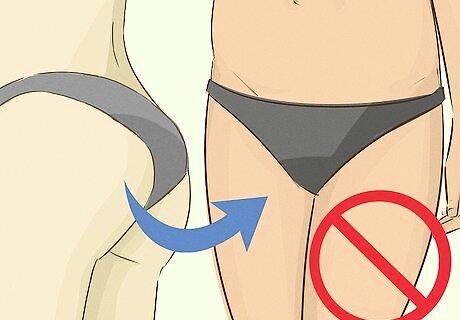
Refrain from engaging in anal sex before vaginal sex. Having anal sex then vaginal sex can transfer harmful bacteria to the vaginal canal. This bacteria can cause vaginal and uterine infections in rare cases. Table anal sex until after birth. Many pregnant mothers also have hemorrhoids during pregnancy, which can make anal sex painful.
Engaging in Sex After Birth

Wait until you’re cleared for sex at your postpartum check up. Whether you deliver by C-section or vaginally, your doctor will want to examine you for any post-birth complications before you engage in sex. Typically this check up is 6 weeks after the birth of your child. Depending upon how this examination goes, your doctor will clear you for sex. In the meantime, you can use kissing, massage, and mutual masturbation to be intimate with your partner.
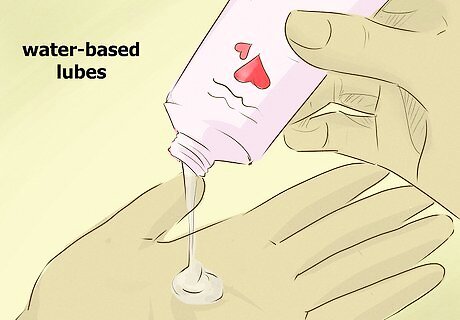
Use lots of lubrication. Use water-based personal lubricants for more comfortable sex after birth. Low estrogen during breastfeeding can make vaginal skin dry and make producing natural lubrication more difficult. Especially if you tore vaginally during childbirth, additional lubrication will make for a more comfortable experience.
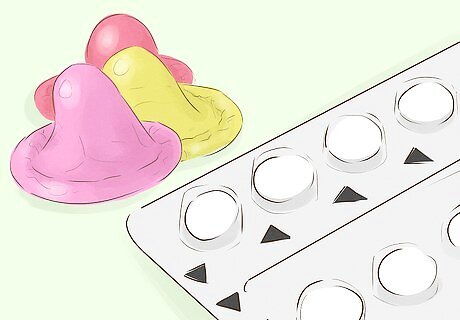
Use contraception. Use condoms, low-dose oral contraceptives, or another method advised by your doctor for contraception after birth. While some women take a while to ovulate again after birth, particularly if breastfeeding, others are capable of ovulation right away. If you’re trying to prevent pregnancy for the moment, safe sex is best. Some combined hormonal birth control is not recommended while breastfeeding because the hormones are excreted in breast milk. Consult with your doctor at your postpartum follow up about the right birth control option for you.




















Comments
0 comment